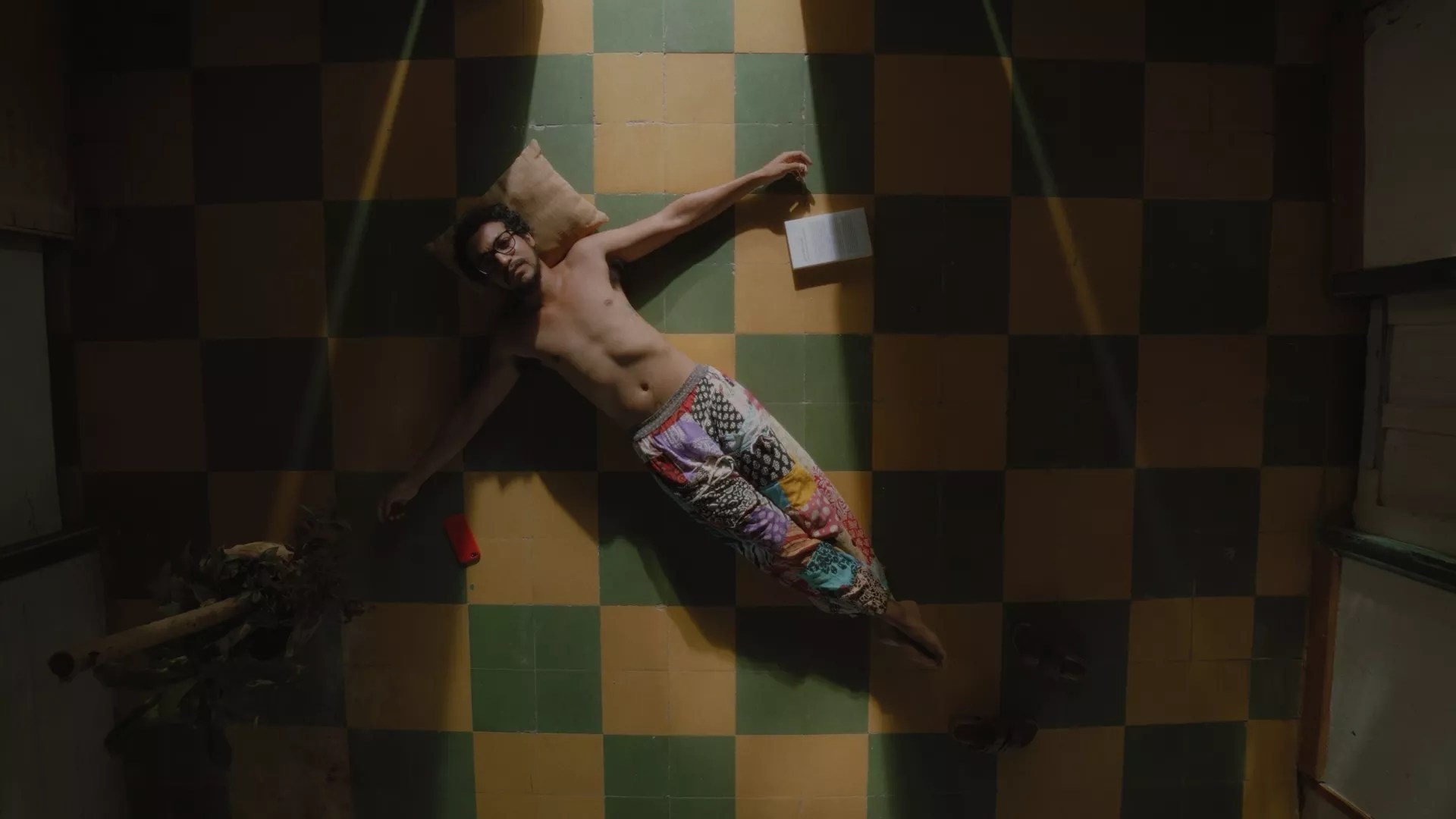
Outshine Film Festival photo

Audio By Carbonatix
This month, Outshine Film Festival is experimenting once again with a two-city festival. In past years, Outshine has catered to South Florida’s LGBTQ cinephiles by offering a fall festival in Fort Lauderdale and a spring festival in Miami. For its 16th edition, the festival has dispensed with the geographical divide and will be screening films in both cities, running in Fort Lauderdale October 17-24 and closing in Miami October 25-28. As a special bonus, the festival has an Outshine-at-Home virtual screening from October 28 to November 3 for anyone in Florida to enjoy.
It’s also an expansive offering in terms of LGBTQ representation, touching on all aspects of queer life as well as representing international and local cinema, independent and commercial projects, and all genres. With such a great offering to select from, New Times is choosing to highlight three terrific films that may fly under the radar screening at Outshine.

All Shall Be Well screens on October 18.
Outshine Film Festival photo
All Shall Be Well
Ray Yeung was a lawyer before becoming a filmmaker. Fortunately, he found his past profession tedious and abandoned the law for cinema. All Shall Be Well, his fourth feature, continues his worthwhile project of exploring queer life in contemporary Hong Kong but also merges his two callings. The film follows Angie (Patra Au) and Pat (Maggie Li Lin Lin), an older, loving lesbian couple who have been together for more than thirty years. Their domestic bliss, both celebrated and envied by friends and family, is shattered by Pat’s sudden, unexpected death.
Yeung deftly examines Angie’s grief, compounded by a precarious legal situation. Pat left no will. Angie discovers that the life she carefully constructed with Pat over decades is built on sand. During her mourning, Angie is forced to negotiate all matters with Pat’s family, who have legal rights over the estate. Each step in the process is a new indignity for Angie, often referred to in public as Pat’s “best friend,” which feels like a simultaneous slap to the face and stab in the back. In the aftermath of Pat’s death, Angie finds that her once ideal relationship with Pat’s family deteriorates amidst the bureaucracy of estate law and familial jealousies.
To his credit, Yeung avoids clichés and simplistic characters. Yeung is interested in complexity. The film explores how the black-and-white rigidity of the legal system leaves the door open for misunderstanding and a morally gray area of what is right and wrong. Yeung’s equalitarian approach to character and dramatic restraint balances a survey of cultural homophobia with a profoundly personal and heart-wrenching story. Angie must battle society, Pat’s family, and her doubts about Pat’s intention, or rather lack of intention. It may all sound too grim, but Yeung, along with his stellar cast, including the tremendous central performance by Au, crafts a beautifully observed family drama, which earned the Teddy Award at the Berlin Film Festival. All Shall Be Well is a cautionary tale about the dangers of not signing on the dotted line, but more importantly, it’s a poignant tale about the important things that can’t be put on paper. 7:30 p.m. Friday, October 18, at Paradigm Cinemas Gateway, 1820 E. Sunrise Blvd., Fort Lauderdale.

Baby screens on October 26.
Outshine Film Festival photo
Baby
Like a cross between Oliver Twist and Pretty Woman, Marcelo Caetano’s Baby is an electric coming-of-age tale set on the seedier streets of SÁ£o Paulo. With his second feature, Caetano expands on his promising talents and once again urges audiences to pay attention to the new cinema emerging from Brazil. While clearly a low-budget independent feature, Caetano and his directors of photography, Joana Luz and Pedro Sotero, craft a pulsating view of survival in a big city with authenticity and immediacy.
The titular character – also known as Wellington – is 18 and fresh out of a juvenile detention center with few prospects when he learns his parents have left the city with no forwarding address. While conducting some petty crime and cruising with his friends at an erotic cinema, Baby meets Ronaldo, an older hustler, who takes Baby under his wing. This involves both introducing Baby to sex work and dealing drugs, as well as a sort of hustler’s worldview philosophy. Toughly and tenderly played by two newcomers, JoÁ£o Pedro Mariano and Ricardo Teodoro, respectively, Baby and Ronaldo have a fascinatingly complex relationship that undulates between supportive and exploitative.
The documentarian realness is punctuated with captivating camera placements and movements. The streets of SÁ£o Paulo are particularly kinetic with tracking shots, hidden cameras, and frantic zooms. Baby is thoughtful, economical filmmaking with a sharpness that thrills. Baby is about wonderfully messy people doing what they can to survive their circumstances. Caetano expertly balances the grit and grime of the setting with a hopeful romanticism that never veers into sentimentality. 7:15 p.m. Saturday, October 26, at the Silverspot Cinema, 300 SE Third St., #100, Miami.

Salt Water screens on October 18.
Outshine Film Festival photo
Salt Water
Several queer filmmakers have tackled the abuse of children by the Catholic Church, like Pedro Almodovar’s Bad Education or Francois Ozon’s By the Grace of God. These established directors took on this weighty subject matter with masterful effect. It is a pleasant surprise that Salt Water, the debut feature by filmmaker Steven Morales Pineda, tackles the same heavy terrain with such confidence and grace.
Set in a beautiful, if rundown, coastal town in Colombia, Salt Water centers around Jacobo (Oscar Salazar), a 33-year-old yoga instructor. Jacobo seems trapped in a subtle state of arrested development in a quest for serenity. His pursuit of peace is constantly interrupted, from late yoga students to an impending sale of his childhood home in the wake of modern apartment developments in the area. Perhaps the greatest intrusion comes from a news story involving a priest from his childhood and accusations of sexual abuse of children.
Eventually, Jacobo reaches out to the priest, played by Jhonatan Yerena, and invites him to stay with him. It’s a compelling dynamic. There is a sense that something inappropriate between the two occurred during Jacobo’s childhood, but neither directly declares what happened. The strength of Salt Water is its embrace of ambiguity and contradictions. Jacobo seems to feel both admiration, desire, and repulsion at times from his relationship with the priest, and Pineda explores the ramifications their relationship has had throughout Jacobo’s life. Jacobo’s internal struggles are juxtaposed against the exquisite cinematography of a seaside village with frames that appear as if they have been left out in the sun after a dip in the ocean. Salt Water is a moving portrait of a delicate subject that avoids clichés and absolutes. 9:45 p.m. Friday, October 18, at Paradigm Cinemas Gateway, 1820 E. Sunrise Blvd., Fort Lauderdale.
Outshine Film Festival. Thursday, October 17, through Sunday, October 27, at various locations; outshinefilm.com.